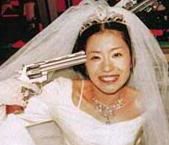| View previous topic :: View next topic |
| Author |
Message |
cubanlord

Joined: 08 Jul 2005
Location: In Japan!
|
 Posted: Sun Oct 22, 2006 11:27 pm Post subject: The History of the English language in Korea... Posted: Sun Oct 22, 2006 11:27 pm Post subject: The History of the English language in Korea... |
 |
|
how it came to be so widespread in this country. Why Koreans are dying to learn English? Why almost every sign in Korea has some form of English on it?
Does anyone know where I can get a book, or books, that'll give me the history of the English language in Korea?
All recommendations are welcomed. |
|
| Back to top |
|
 |
gang ah jee

Joined: 14 Jan 2003
Location: city of paper
|
 Posted: Sun Oct 22, 2006 11:30 pm Post subject: Posted: Sun Oct 22, 2006 11:30 pm Post subject: |
 |
|
| Um, a history book? |
|
| Back to top |
|
 |
Satori

Joined: 09 Dec 2005
Location: Above it all
|
 Posted: Mon Oct 23, 2006 2:34 am Post subject: Posted: Mon Oct 23, 2006 2:34 am Post subject: |
 |
|
| Elementary dear Watson, you see there was this little war and... |
|
| Back to top |
|
 |
Smee

Joined: 24 Dec 2004
Location: Jeollanam-do
|
 Posted: Mon Oct 23, 2006 4:52 am Post subject: Posted: Mon Oct 23, 2006 4:52 am Post subject: |
 |
|
| It's just something to do, something to study. The latest in the progression of concepts. The Korea Times sucks, but Andrei Lankov writes columns about Korean history, and a few times he's written about the history of English education and the history of the hagwon. http://times.hankooki.com , click on Opinion, and you'll see his columns near the middle. |
|
| Back to top |
|
 |
cwemory

Joined: 14 Jan 2006
Location: Gunpo, Korea
|
 Posted: Mon Oct 23, 2006 5:33 am Post subject: Posted: Mon Oct 23, 2006 5:33 am Post subject: |
 |
|
| Satori wrote: |
| Elementary dear Watson, you see there was this little war and... |
Seems like you could go further back if you wanted, to include the missionary schools prevelant at the turn of the century. |
|
| Back to top |
|
 |
Junior

Joined: 18 Nov 2005
Location: the eye
|
 Posted: Tue Oct 24, 2006 3:29 am Post subject: Posted: Tue Oct 24, 2006 3:29 am Post subject: |
 |
|
Its a desire for recognition, as well as to be able to compete economically.
It dates from the war. Once they'd seen the superiority of American technology and power, then, like Japan, they realised they had to catch up fast..
Difference is, Korea was never taught the ultimate lesson in the way Japan was. Complete capitulation and surrender enabled the Japanese to open themselves so completely to western influence, while korea was allowed to continue entertaining fantasies of racial superiority and nationalism. Thus..they follow the west begrudgingly. |
|
| Back to top |
|
 |
gang ah jee

Joined: 14 Jan 2003
Location: city of paper
|
 Posted: Tue Oct 24, 2006 3:56 am Post subject: Posted: Tue Oct 24, 2006 3:56 am Post subject: |
 |
|
| Junior wrote: |
| Complete capitulation and surrender enabled the Japanese to open themselves so completely to western influence, while korea was allowed to continue entertaining fantasies of racial superiority and nationalism. |
Haven't spent much time in Japan, have ya? |
|
| Back to top |
|
 |
Junior

Joined: 18 Nov 2005
Location: the eye
|
 Posted: Tue Oct 24, 2006 4:09 am Post subject: Posted: Tue Oct 24, 2006 4:09 am Post subject: |
 |
|
| gang ah jee wrote: |
Haven't spent much time in Japan, have ya? |
thats true I haven't..but would you agree theres some truth to my theory?
The bomb turned the japanese mindset finally into a total pursuit of the more powerful west and its ways.
South korea is still arrogant because they were "spared the spanking".  |
|
| Back to top |
|
 |
gang ah jee

Joined: 14 Jan 2003
Location: city of paper
|
 Posted: Tue Oct 24, 2006 4:33 am Post subject: Posted: Tue Oct 24, 2006 4:33 am Post subject: |
 |
|
| Junior wrote: |
| gang ah jee wrote: |
Haven't spent much time in Japan, have ya? |
thats true I haven't..but would you agree theres some truth to my theory?
The bomb turned the japanese mindset finally into a total pursuit of the more powerful west and its ways.
South korea is still arrogant because they were "spared the spanking".  |
Sorry Junior, but I can't agree with your theory at all. It's not based in reality.
And sorry if I'm being a bit harsh all of a sudden, but in the space of a few minutes you made three posts that made my eyes pop out of their sockets in surprise like this:  . Maybe I've reacted a bit strongly. . Maybe I've reacted a bit strongly. |
|
| Back to top |
|
 |
RACETRAITOR
Joined: 24 Oct 2005
Location: Seoul, South Korea
|
 Posted: Tue Oct 24, 2006 4:39 am Post subject: Posted: Tue Oct 24, 2006 4:39 am Post subject: |
 |
|
Yeah, I think Korea got it much worse. The worst that happened to Japan was two bombs on two cities. The worst thing that happened to Korea was it was divided in half. Not pointing blame for the purpose of this thread, just pointing out that your average Tokyo citizen has gone through far less hardship in the last 100 years than your average Seoulite.
The Japanese absorb things from other cultures and put their own personal touch on them so the things will seem more Japanese. Things that don't have that Japanese touch are not popular in Japan. |
|
| Back to top |
|
 |
Hollywoodaction
Joined: 02 Jul 2004
|
 Posted: Tue Oct 24, 2006 8:26 am Post subject: Posted: Tue Oct 24, 2006 8:26 am Post subject: |
 |
|
Someone doing a MA in Tesol, Cubanlord?
I can be of help. I've written a paper on more or less that topic, so I think I can turn you in the right direction.
A good place to start is here:
http://www3.telus.net/linguisticsissues/koreanvernacular
From there, check what he's got listed as references.
I strongly recommend that you read the articles �English Language Education in Korea Under Japanese Colonial Rule� , "Codified Korean English: Process, charateristics, and consequence", and "Linguistic hybridization in K-Pop: discourse of self-assertion and resistance".
In case you can't get your hands on these articles, here's a highly compressed blurb:
Basically, formal English education began in Korea in 1883 when the King opened the national school for interpretors. Missionaries opened their own schools. Some had success using the direct method. Then, the Japanese came, closed missionary schools, used the grammar translation method, gave birth to Konglish through their creative use of English in Japanese textbooks, eventually anything American or English was made illegal (ironic since the Japanese were obsessed with modernization through wersternization) causing Koreans to become curious about English (what you can't have always seems more attractive). Post WW2 US influence: Koreans who got the best jobs had studied abroad (those who got jobs producing English language education policy were more intrested in maintaining their position...little was done, copied old Japanese textbooks, more Konglish and rote repetition (grammar translation)). Everybody wanted good jobs, and English seemed to be the key based on their own observations. English became an obsession as it opened doors in the job market...but corporations relied on standardized tests to measure their prospective employees's English language ability. As a result, people began spending an increasing amount of money and time on English test prep (we've all met students who got a supposedly high score on the TOEIC exam, but yet can't answer the simplest questions (what would be the equivalent of a passing grade on that test is what they mean by a 'high score')). The same occurs in schools where teachers and the government did little to improve communications skills. Teachers often reverting to old ways despite any new policies. The government produces biased research trying to minimize the amount of money spent on English education (comparing test results of 6 year old kids who learned English through a native speaker and the results of 9 year old kids who haven't, knowing all too well that the benefits of early second language learning will only be evident when the kids are adults and that 9 year old kids should do better on any test since 6 year old kids have little or no test taking skills), publishes textbooks full of English mistakes or Koreanized English (which should be recognized as a growing form English within the Korean context), thus contradicting its position that English in Korea is for the purposes of internationalization. All of that brings us to the current situation: Koreans spend an awful lot of money on English education, but are still among the worst English learners in Asia. |
|
| Back to top |
|
 |
cbclark4

Joined: 20 Aug 2006
Location: Masan
|
 Posted: Wed Oct 25, 2006 12:53 pm Post subject: Posted: Wed Oct 25, 2006 12:53 pm Post subject: |
 |
|
Korea has a 5000 year history of absorbing the culture of it conquerors while maintaining and strengthening it's own culture and national identity.
cbc |
|
| Back to top |
|
 |
|

